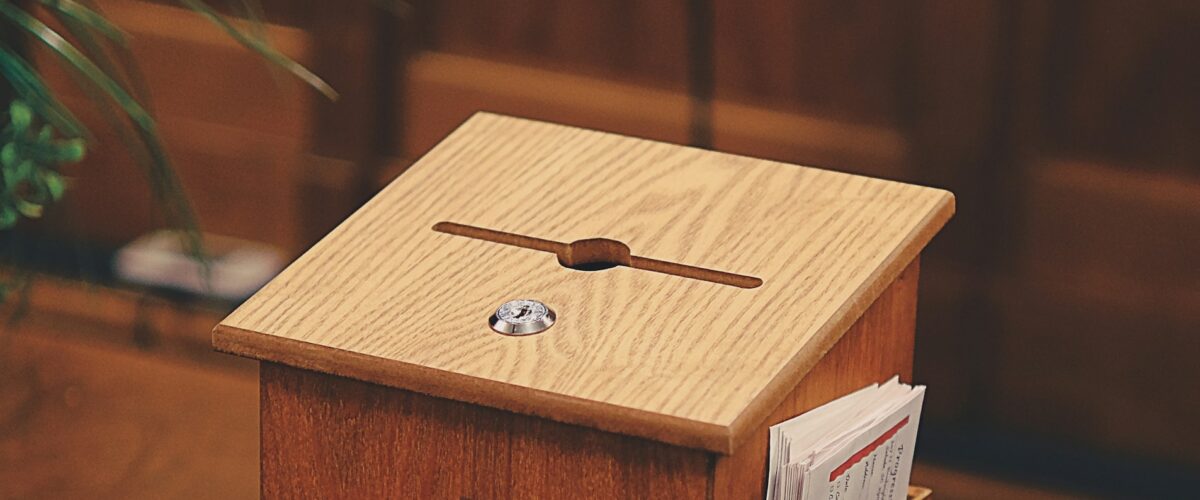The most potent of all signs for our friends and neighbors comes from within.
From time to time, you’ve probably wished you could do something about “all the harsh things that ungodly sinners have spoken against him [Christ]” (Jude v.15). That doesn’t mean destroying them. If you’re anything like me, you’d probably settle for wowing them into a stupefied silence.
Maybe this would be a demonstration of power, a proliferation of signs and wonders that would mightily attest to salvation and the lordship of Christ. In fact, many Christians seek these things today. I am not a cessationist (one who believes all miraculous spiritual gifts have ceased) and respect the various scriptural ways, miraculous or otherwise, in which God might witness to His work. However, I find it annoying, even pathetic, when Christians try to substitute power signs (miraculous displays of tongues, healing, etc.) for the fruit of the Spirit (character transformation that bears witness of the Holy Spirit’s presence).
Strangers might find miraculous displays convincing, but we are surrounded by a number of people who know us and our character weaknesses. Because of what we are and what we do (which is often not the best), these people find it easy to write off faith as a sham. They don’t care if you can suddenly speak Mandarin Chinese in a Sunday church service or heal someone’s arthritis. All they remember is that you stiffed them for fifty bucks, or you have a habit of dodging responsibility, or that you exaggerate, or gossip, or have anger management issues, or live in a self-centered world. Once these things pile up, the average sinner will not find much convincing in your faith.
Go ahead, tell them how you had a vision last night about the end of the world. While you’re at it, tell them what you learned in Sunday school. Inform them of the degrees you’ve earned in seminary. Try to amaze them with the number of Christian books you’ve read. Don’t forget all the exciting things that happened while on your mission trip to Haiti.
But don’t be surprised when what you were still seems to speak louder than what you are now.
Nothing is quite so powerful than when eternal life itself speaks up for the believer and for Christ. More than anything else, it silences critics and, most importantly, the critics who know us.
We have only to consider Zacchaeus, who was called “a chief tax collector” (or rather, “chief sinner”). Luke 19:6 tells us he received Christ joyfully, but when Jesus announced a visit to the man’s house, the crowd immediately leveled an accusation against Jesus:
“When they saw it, they all grumbled, ‘He has gone in to be the guest of a man who is a sinner’” (v. 7).
This was at once an accusation against both Zacchaeus and Jesus. For one had sinned, and the other was considered guilty by association with him.
However, neither Zacchaeus nor Jesus answered the crowd. Instead,
“Zacchaeus stood and said to the Lord, ‘Behold, Lord, the half of my goods I give to the poor. And if I have defrauded anyone of anything, I restore it fourfold.’” (v. 8)
Jesus confirmed that this was indeed salvation: “And Jesus said to him, ‘Today salvation has come to this house since he is also a son of Abraham. For the Son of Man came to seek and to save that which is lost.’”
This brief but brilliant exchange was the best way to defend the honor, glory, and wisdom of God. It did not come through clever counter-arguments or miracles but through demonstration of a new life.
The crowd knew this man’s previous life and how it had been spent in bondage to greed and selfishness. How, then, would new life demonstrate it had upended the old? How would it demonstrate true inner change, the glory of Christ, and the salvation of God?
It manifested itself through generosity (Half of my belongings I give to the poor!)–the exact opposite of what the old version of Zacchaeus had ever shown.
And by what means would this new life answer the fiduciary crimes Zacchaeus had committed? Returning the funds, obviously, but with a 400% interest rate!
At this, the disapproving crowd fell silent. Only the most unfair, dishonest critic would have continued making a contrary case against the man or his Savior.
This is an updated edition of a post originally published on Bareknuckle Bible
Featured Image by Anja from Pixabay




















[…] Open the full article on the kingdomwinds.com site […]